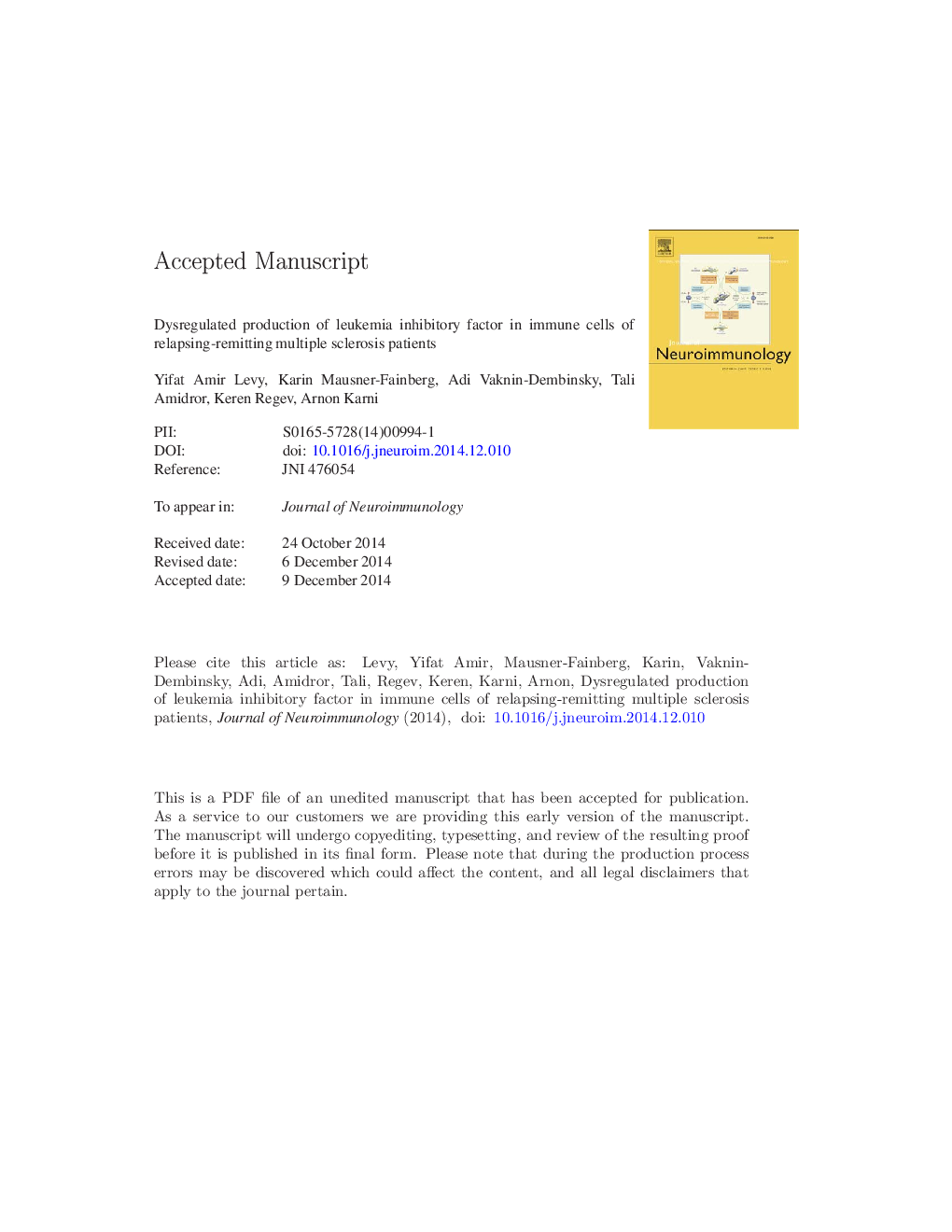| Article ID | Journal | Published Year | Pages | File Type |
|---|---|---|---|---|
| 6020356 | Journal of Neuroimmunology | 2015 | 25 Pages |
Abstract
Leukemia inhibitory factor (LIF) is known to potentiate the differentiation and survival of neuronal and oligodendrocyte precursors. Systemic therapy with LIF reportedly ameliorated the severity of experimental autoimmune encephalomyelitis and prevented oligodendrocyte death. We studied the secreted LIF levels from immune cells of relapsing remitting multiple sclerosis (RR-MS) patients compared to age- and gender-matched healthy controls (HCs). LIF was barely detected in the supernatants when the cells were not stimulated. After stimulation with anti-CD3/CD28 monoclonal antibody, LIF levels were up-regulated in both patients and controls, although to a significantly lower extent in RR-MS patients compared to HC. There were no significant differences between untreated patients and interferon-β1a treated patients. This is a heretofore unreported aspect of immune dysregulation in patients with RR-MS that may be related to insufficient remyelination and neurogenesis in MS lesions.
Keywords
NPCPBMCsNSCsSGZHCsEAESVZinfIFN-βMACSGFAPmAbLPSTNFαRR-MSLIFOPCsrelapsing remitting multiple sclerosisRemyelinationMonoclonal antibodyexperimental autoimmune encephalomyelitisinterferonInterferon-βtumor necrosis factor αperipheral blood mononuclear cellsT cellsOligodendrocyte precursor cellsleukemia inhibitory factorlipopolysaccharidesubgranular zoneMultiple sclerosisMonocytesNeurogenesisGlial fibrillary acidic proteinhealthy controlsGlycoprotein
Related Topics
Life Sciences
Immunology and Microbiology
Immunology
Authors
Yifat Amir Levy, Karin Mausner-Fainberg, Adi Vaknin-Dembinsky, Tali Amidror, Keren Regev, Arnon Karni,
